With the advent of home DNA testing technologies such as 23andMe and Ancestry.com, interest in—and access to—our own family heritage has never been higher. Sometimes, however, an attempt to find out where you came from will lead to surprising revelations, as is often the case in these 10 books which show the ups and downs, the surprises and comforts, and the dangers and delights of genealogical research.
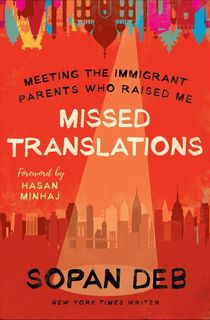
Missed Translations
A stand-up comedian and award-winning writer for The New York Times, Sopan Deb often used his heritage and upbringing to power his stories and his jokes. Now, in a “delightful memoir of people and place that will draw in Deb’s fans and attract plenty of new ones” (Library Journal), Deb showcases his “breezy and witty” (Booklist) writing style as he tells the story of reconnecting with the immigrant parents who raised him yet always maintained their distance.
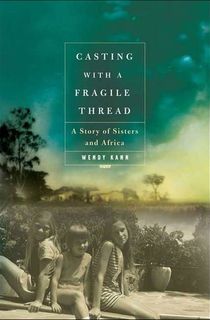
Casting with a Fragile Thread
“Until recently, writers like Joseph Conrad and Paul Theroux have defined the white colonial experience in literature,” writes Publishers Weekly. “Now […] we’re hearing from a different constituency: the daughters. Their tales, Kann’s included, make for fascinating reading.”
Wendy Kann grew up in a colonial manor in a Rhodesia that had just declared independence from Britain. Years later, she was drawn back to her homeland after the tragic death of her youngest sister in a car crash, which forces her to reexamine the life she led and the legacy of family and colonialism on herself, her own children born in America, and the country she left behind in this memoir that “vividly evokes life in colonial Africa” (Booklist).
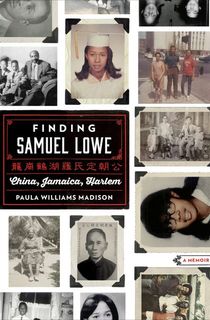
Finding Samuel Lowe
With a successful corporate career behind her and the arrival of her own grandchild, Paula Williams Madison begins a quest to find her maternal grandfather, who left his three-year-old daughter behind in Jamaica when he returned to China nearly a century before. The result is a “quick, fascinating read” (Bustle) that “will produce more OMG moments than any prime-time drama on cable or Netflix could ever hope to elicit” (Essence), as Paula traces her family from Harlem to Jamaica, Jamaica to China, meeting relatives she never knew she had and discovering the truth about her grandfather—and about herself, in the process.
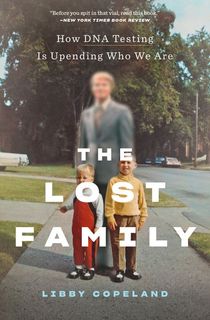
The Lost Family
In recent years, advances in DNA testing have led to a rise in popularity of “at-home” DNA tests. In this “well-researched, thorough and fascinating” (Columbus Dispatch) book, journalist Libby Copeland investigates the seismic change this new technology has wrought on often unsuspecting families who were simply planning to do a little recreational genealogy.
“Up-to-the-minute science meets the philosophy of identity in a poignant, engaging debut” (Kirkus Reviews) that “wrestles with some of the biggest questions in life” (Washington Post) as Copeland’s far-ranging book both examines the cultural and technological forces driving this industry, and the individual lives affected by it.
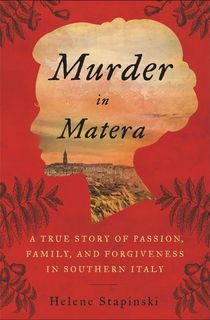
Murder In Matera
As a child, Helene Stapinski grew up hearing family stories about her great-great-grandmother Vita, who killed a man in Italy back in the 19th century. As a mother herself, with her children in tow, she decided to return to Italy to try to find the truth—a quest that would reveal troubling secrets about Helene’s family, and upend her understanding of the murder mystery that had started her on this journey.
The result is an “enticing page-turner” (Kirkus Reviews) and a “gem” (San Francisco Chronicle) where, “in addition to solving the murder, Stapinski produces a vivid picture of the region’s hardships, past and present” (The New Yorker).
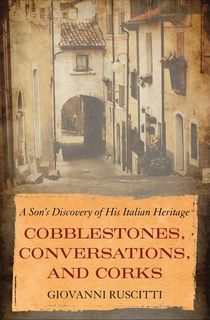
Cobblestones, Conversations, and Corks
“A compelling read from cover to cover” (Midwest Book Review), this unique memoir follows Giovanni Ruscitti as he returns with his parents to the small Italian village from which his family was driven during World War II. There, “the author lucidly combines the personal and the political” (Kirkus Reviews) as his father tells stories of the family’s hardships and the author himself reflects on what our heritage truly tells us about who we are. “At the end of the day, Ruscitti proves that not only can you go home again, you can also go home for the first time” (Manhattan Book Review).
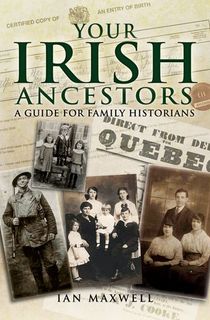
Your Irish Ancestors
Formerly a record officer at the Public Record Office of Northern Ireland, Dr. Ian Maxwell is a leading expert on Irish genealogy and, in this direct and entertaining guide aimed at the family and social historian, he gives insight not only into what life was like in Ireland across the last four centuries, but provides indispensable guidance to the various public resources available to those who wish to trace their own Irish heritage. It's more than merely a guidebook for prospective family historians, instead aiming to put Irish heritage into historical perspective and give would-be genealogists a better understanding of the lives their ancestors might have lived.
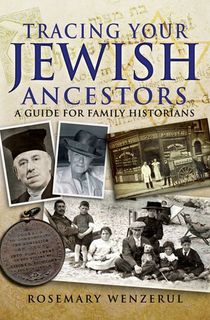
Tracing Your Jewish Ancestors
A former trustee of the Jewish Genealogical Society of Great Britain, Rosemary Wenzerul was the author/editor of many of the Society’s “Jewish Ancestor” guides on family history, which won the International Association of Jewish Genealogical Society’s Outstanding Publications Award in 2008. In this informative guide, she takes the prospective genealogical researcher through a step-by-step process of family research, while also providing vital historical context on Jewish lives across several tumultuous centuries.
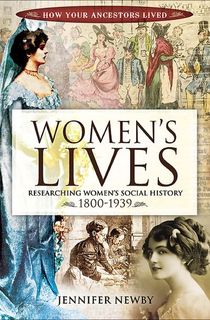
Women's Lives
Too often, women’s lives have been ignored by history, including genealogy. Jennifer Newby’s “readable” (Ryedale Gazette and Herald) guide to women’s social history aims to change that. Whether you’re interested in tracing your own female ancestors or just want to learn more about how women lived in the past, this book provides “an invaluable research tool and a well compiled collection of historical accounts. It would make a suitable read for not only the student or early career researcher, but also the casual reader interested in learning more about the topic of women’s social history,” according to the Feminist Studies Association.
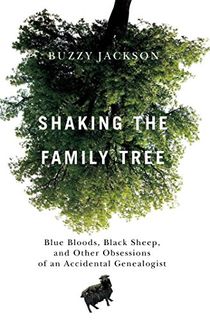
Shaking the Family Tree
“Recommended both for those actively involved in genealogy and for those considering becoming involved” (Booklist), Shaking the Family Tree is a whirlwind guide to the world of genealogy (amateur as well as professional) as well as a memoir of the author’s own quest to discover her family history. An award-winning writer with a PhD in U.S. History, Jackson is a “skilled writer” (Publishers Weekly) who deftly weaves together both a crash course in genealogy and her own family history as she travels across the country, visits lost graveyards, and even embarks upon a genealogy cruise!
This post is sponsored by Open Road Media. Thank you for supporting our partners, who make it possible for The Archive to continue publishing the history stories you love.

